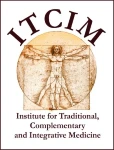
Dr. Anton Janse van Rensburg, MBChB (UP), MSc (UP), AMP (MBS) - Czech Republic
Abstract of the presentation
The Safe and Effective Application of Silver in Clinical Practice
Branch: Nutritional Supplements
Silver has been used in medicine for over two millennia, with historical references by Hippocrates and widespread application across ancient civilisations. In modern integrative practice, silver is re-emerging as a safe, evidence-informed adjunct with broad-spectrum antimicrobial properties. Its ability to disrupt bacterial, viral, and fungal integrity without inducing resistance makes it highly relevant to the growing challenge of chronic and treatment-resistant infections.
Recent research highlights silver’s multi-targeted mechanisms, including disruption of microbial membranes, interference with replication pathways, and inhibition of biofilm formation. Clinically, practitioners report benefits from topical, oral, and nebulised silver, particularly in upper respiratory tract infections, skin conditions, and gastrointestinal infections. Silver’s immunomodulatory effects may also assist with inflammation control and tissue repair. Emerging research includes its role in eczema, resistant fungal and parasitic infections, and potential anticancer activity demonstrated in preclinical models.
Concerns about safety, particularly argyria and microbiome disruption, are often overstated. These risks are primarily associated with unregulated or inappropriate forms of silver, such as high-concentration colloidal silver, banned nano-silver formats, and silver compounds manufactured without proper oversight. In contrast, pharmaceutical-grade ionic silver (Ag⁺) in purified, deionised water presents a fundamentally different safety profile. Produced under validated Good Manufacturing Practice (GMP) conditions, it contains no stabilisers, excipients, or carriers, and is typically used at ultra-low concentrations below 0.003%. Studies in lung cell lines, human oral use, and inhalation models support its low toxicity, even at elevated exposure levels. Microbiome studies confirm no disruption at standard doses.
This presentation will review silver’s historical foundations, clinical applications, evidence base, and safety profile. It advocates for a responsible, patient-centred approach to its use. Importantly, clinicians must distinguish between nanoparticulate silver and GMP-certified ionic silver. While nano-silver may carry risks of accumulation and toxicity, properly formulated ionic silver remains a safe and versatile option in integrative care.
Curriculum vitae
Dr Anton Janse van Rensburg is a practising medical doctor based in Pretoria, South Africa. He holds an MBChB degree from the University of Pretoria and a Master’s degree in Applied Human Nutrition. He has completed further postgraduate studies in metal toxicology, the medicinal use of noble metals, and the endocannabinoid system. His clinical focus is integrative medicine, with particular expertise in managing chronic illnesses, including autoimmune diseases, adjuvant cancer therapy, inflammatory bowel disease, and mood disorders. Dr Janse van Rensburg is an experienced public speaker and health educator. Since 2014, he has developed and presented numerous CPD-accredited courses for medical professionals in South Africa, particularly on the gut microbiome, child brain development and rehabilitation, and dietary strategies for managing inflammation. He has lectured to multidisciplinary audiences, including general practitioners, various medical specialists, and allied health professionals. In the area of medicinal cannabis, Dr Janse van Rensburg presents CPD-certified training to South African doctors, providing evidence-based guidance on prescribing within the legal and ethical framework. More recently, in 2023, he began presenting on the clinical application of pharmaceutical-grade ionic silver (Ag⁺), integrating emerging evidence with practical case-based insights. His academic work includes published research in the Journal of Nutritional Science and Vitaminology, where he co-authored a study on the “Validity and Reliability of Field Raman Spectroscopy for Assessing Carotenoid Status,” contributing to non-invasive micronutrient assessment methods. Dr Janse van Rensburg continues to practise clinically, consult in integrative therapies, and contribute to ongoing professional education and public health dialogue in South Africa.
Please note that some of the texts also include machine-generated translations.





